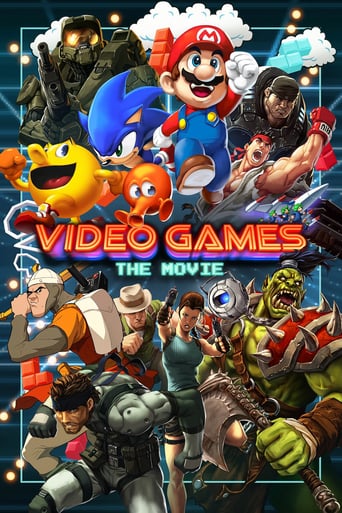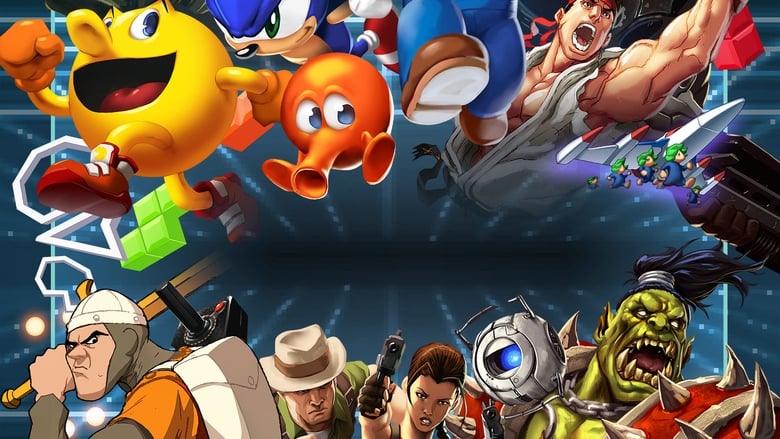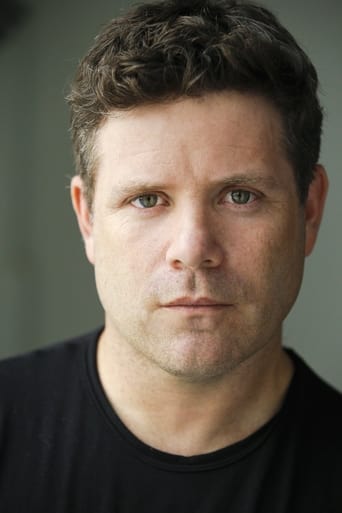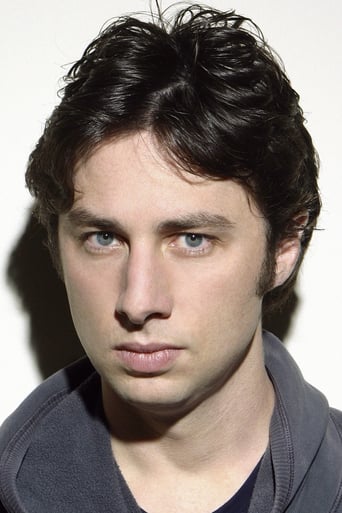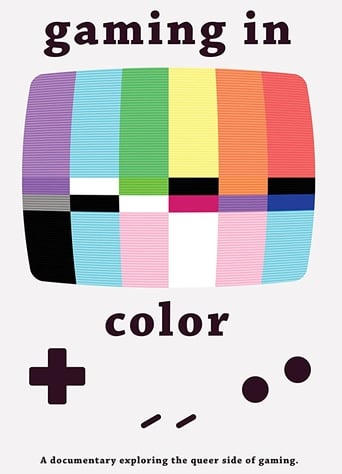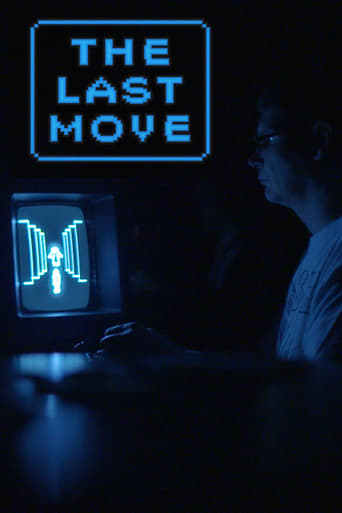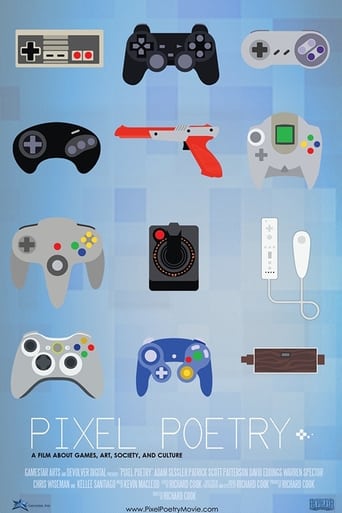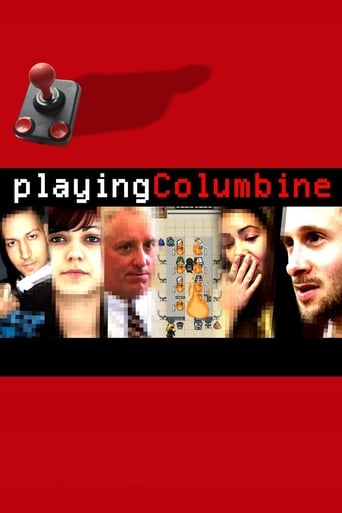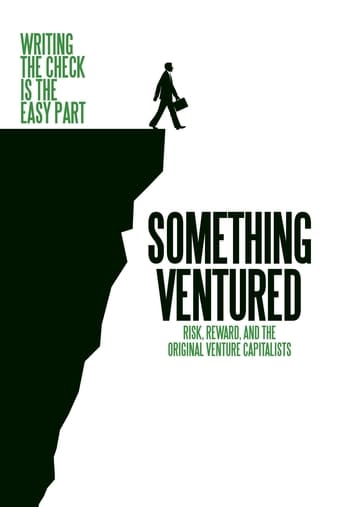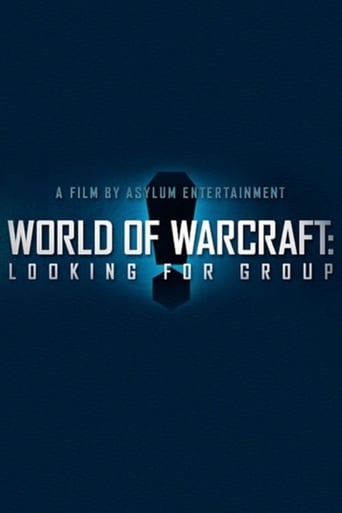Video Games: The Movie (2014)
From executive producer Zach Braff and director Jeremy Snead, "Video Games: The Movie" is an epic feature length documentary chronicling the meteoric rise of video games from nerd niche to multi-billion dollar industry. Narrated by Sean Astin and featuring in-depth interviews with the godfathers who started it all, the icons of game design, and the geek gurus who are leading us into the future, "Video Games: The Movie" is a celebration of gaming from Atari to Xbox and an eye-opening look at what lies ahead.
Watch Trailer
Cast
Similar titles
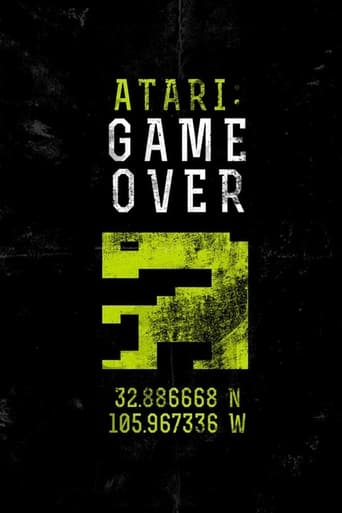
Reviews
Overrated and overhyped
Fantastic!
As Good As It Gets
Absolutely the worst movie.
The film completely ignores the co-development of PC games. A gaping hole as far as I'm concerned as the superior capabilities of the PC allowed the development of more sophisticated games(e.g. Wolfenstein 3D, Civilization etc.). The film also does not detail the corresponding improvement in microprocessor technology which completely dictated the advancements in graphics and game speed. Otherwise the film is well put together and for the most part touches on the major milestones of game history. Personally I would have enjoyed more emphasis on the early mainframe computer game development. For instance the origins of Colossal Cave Adventure and it's subsequent genesis into the RPG games of today
This is a movie that attempts to explain why video games are so successful. I watched it after the far superior Atari Game over (which you can watch for free if you are on xbox live(at the current time)). Really what irked me about this was that the guy was not there at the time so had no idea what caused the video game crash. Being a huge Atari 2600 fan I can say ET is a good game. The only people who say it is the worst game in history have not played the game. Atari lost a court case to activision. This meant that they could produce games for the 2600 without any interaction with Atari. Yeah Atari had put out loads of poor games but most of them had been withdrawn as programmers understood how to make games for the 2600. So probably the worst game of all time was Starship (you play for about 3 minutes then it is game over (a poor man's star raiders). Though companies like Bomb, Xonox and Data age released games which were for the most part poor. Then other companies like US games came to the fore. They produced games of such poor quality but they were released for the same price as Atari games. This is what contributed to the crash. This and everyone putting out substandard computers in a way of getting some market footprint into a steadily shrinking market. I think of (in the UK) Memotek, Dragon 32, Oric Atmos as being the main culprits. Substandard pcs that did nothing to advance the games market. In America you had junk like the Coleco Adam (it came with a daisy wheel printer!) and fitted into your cbs colecovision (a very good console). Also the Mattel Aquarius which was junk and the Texas TA. I could go on but you get the picture.For the film maker to single out one games and attribute that as causing the crash shows this person knows nothing about video games and just relied on a few old myths.Perhaps he was too broad in his subject view and should just have concentrated on video games from the PS1. Then he would have been okay. For old gamers like me this movie is an insult. It is available on netflix.
A video game's basis goes back to technology. Technology is what got us to this point today. The internet and several other mediums are the very things that allow billions of people around the world to communicate the way we currently do. Just imagine how much slower the world would move without it. Not only this, but there would also be various other things missing as well. In this documentary, first time feature writer/director Jeremy Snead, gives us this intriguing movie about the history of video games, how they came to be, evolved and continue to endure today.Best known for playing Samwise 'Sam' Gamgee from The Lord of the Rings franchise, Sean Astin narrates the documentary through assorted lenses. Initially to brief their audience, Astin and Snead chuck out a bunch of statistical information about video games. Topics like what percentages of age groups play them, how many play between each gender and how many roughly per home. It's an efficient ice breaker to help their viewers understand just how significant video games are right now (of course those numbers will change over time). After this, the real captivating information begins to unfold starting from the beginning. Who invented the video game? It's interesting to know because for those who are in engineering, probably would not have much of a clue because video games are a marriage between science and art. Most of the time, engineering schools stick to the science and do not include the art.The other subjects discussed are the types of roadblocks the gaming industry came across. One of the biggest issues mentioned was the video game crash after the release of Atari's E.T. in 1983, which also was covered by The Angry Video Game Nerd for anyone who follows cinemassacre.com. Other problems such as the affects of simulated violence on children and the whole universal perspective of gamers as a community are also talked about; along with the possibility of future gaming in general. Plus, gaming as a culture has had a massive effect on how people live today as well. It may seem like there's not many, but there's more to it. The fact that there's an underground society that only casual gamers might not have even considered. Gaming has a big following - no doubt about that. These are just a few of several subtopics examined throughout the film's running time.As an actual documentary, it's largely solid. The crew was able to get multiple interview snippets of various people who either worked on video games, actors or even the creators themselves. To name a few; Zach Braff, Cliff Bleszinski, Chloe Dykstra, Donald Faison, Chris Hardwick, Wil Wheaton, Max Landis (story writer to the cult film Chronicle (2012)) and Nolan Bushnell (creator of Atari). When it came to visuals, the majority of the film cuts to a time line with numerous icons that showcase the particular year, thus segueing into the next topic of discussion. That's not all though. The crew also likes to insert a diverse amount of video game clips from different eras and even home videos of people playing games or news anchors of different broadcasting stations. It gives it a very nostalgic feel.The cinematography, also provided by writer/director Jeremy Snead, has the ability to show the culture of video games today. Examples like this are the conventions people attend, the massive competitions that take place in super stadiums and the atmosphere of which the culture has grown from. It's actually somewhat overwhelming because of how passionate these people really are. The only minor flaw to this documentary is Craig Richey's score. Viewers should be able to hear from time to time with its soft piano and occasional nostalgic 8-bit songs, but it gets overshadowed frequently. This is either due to the inclusion of contemporary music or just because it wasn't emphasized at the right time. This also isn't Richey's first composition so I wonder if he didn't think all that much effort was needed. Oh well, it's still very cool to watch.This documentary pretty much covers all bases here on video games. Even though it's musical score isn't as effective as it could; the writer/director is able to give its viewers and fans the best information available about why gaming is so popular and how it became that popular.
I don't consider myself a gamer. Of course I've played video games. Growing up, my siblings and I would play on our Nintendo 64, Play Station 2, and Game Boy Advance. I still play video games with my friends, but not consistently. I don't have the knowledge that some of my friends do about video games. I was interested in watching this film though, because I knew little about the video game industry and was curious. Jeremy Snead's "Video Games: The Movie" is a documentary about video games that is broken up into 4 clear sections: history, culture, creation, and future. Throughout these 4 sections, Sean Astin narrates and a collection of video gamers and creators tell us about video games, what they mean, how we use them, where they were, where they're going, and why so many people love them.The first half an hour or so bursts with energy and gives us an overview of the history of video games. The opening credit sequence is fun and is a tribute to video games. Although it feels rushed, has missing parts, and can be a little hard to keep up with, it keeps you engaged. The rest of the film jumps around and fills in the blanks throughout the other sections. I'm not sure why Snead did this. Why not give a complete telling of the history of video games from start to finish? "Video Games: The Movie" feels kind of broken up when it could have been more of a holistic documentary. It could have been stronger in storytelling, but it still works.Sean Astin has fun being a narrator and the people being interviewed have a deep passion for video games. Snead does a great job of capturing the love of video games and what they mean to our society. You may not always get the small details of who built what and why, but you get the essence of video games and why they have been so successful and ingrained in our culture. Snead's "Video Games: The Movie" has its speed bumps and may not capture all the gritty details about the video game world, but it's a good overview of video game history and culture that captures the love people have for video games. Going into this knowing little about the video game world, I feel like I know much more about them now. I want to go out and play some video games now.
